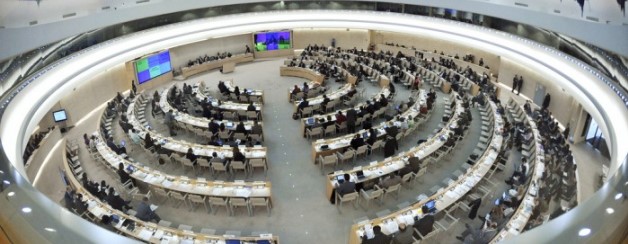Prime Minister Ranil Wickremesinghe yesterday emphasised that the government will not deviate from the Geneva resolution on reconciliation and accountability in any way.
The Premier addressing the Commonwealth Parliamentarians’ Association Regional Seminar for Members of Parliament also said reconciliation and accountability go hand in hand, addressing the issues related to post war rebuilding efforts, highlighting the immediate need for economic revival of the two war affected Provinces.
“So our whole approach is reconciliation and accountability. We are not talking about accountability without reconciliation or reconciliation without accountability.
How do you achieve it, this is a task, on one hand you want to know what happened and who was responsible, and on the other hand we want to get on with your future,” he said.
Premier Wickremesinghe outlined the proposed process of reconciliation and accountability, which would have different elements; a council office for accountability, a missing persons office, a Truth and Reconciliation Commission, legal process and a Compassionate Council.
“We are looking at different mechanisms, one is a special counsel’s office, to look into what has happened to decide on what should be done, and a Missing Persons Office that should be there in the future also, a large number of people are missing, and to find out what happened to them. There is another institution, the Truth and Reconciliation Commission (TRC). We are working with South Africa to have a TRC that suits our needs. From the TRC, there is another mechanism, the court structure,” he outlined.
The finer points regarding the court structure such as number of appeals will be decided following discussions, Wickremesinghe said.
However, a majority of the cases are likely to be directed by the TRC to the Compassionate Council which will also look into the long term reconciliation of the people, he said.
A technical team along with Members of Parliament will be going to South Africa to study their TRC mechanism to devise a suitable structure of TRC for Sri Lanka, the Prime Minister said.
Emphasising the need for economic development of the Northern and Eastern Provinces, the Prime Minister said the Japanese government will host a development forum targeting only the North and East in the coming months.
“There has to be solid investments in the infrastructure. The government of Sri Lanka hasn’t got those resources ; the government of Japan has been gracious to host a development conference in Japan with donors and investors for forum for the North and East.Without that development will be impossible,” he highlighted.
“The composition of the Supreme Court is decided by the Constitution. So who can be members of the final body is what the constitution decided, and they are citizens of Sri Lanka. We have no provision here to have foreign judges, that does not preclude commonwealth judges from participating in the process. There is this big question of who can be prosecutors; that neither the president nor I nor Parliament can decide. The Bar jealously guards that right, and says that the Supreme Court shall decide,” the Prime Minister said.
“If you have passed your exam all well and good, if you are not a lawyer of your own country the only way is to go before the Supreme Court is to tell them what to do. If we are to change that the Supreme Court will say it requires a referendum. Within this we will look at how judges should participate,” he said.
“These are issues we have to explain to the people. We cannot take the UN declaration and read it out. We have to explain it in relation to the people. In the north they want to know why there has to be reconciliation and accountability and in the south we have to say accountability does not mean we are violating sovereignty. This is why you have to understand that we have to market it to different people. This is a big issue among the Sinhala speaking population and we need to go and explain it,” the Prime Minister said.
